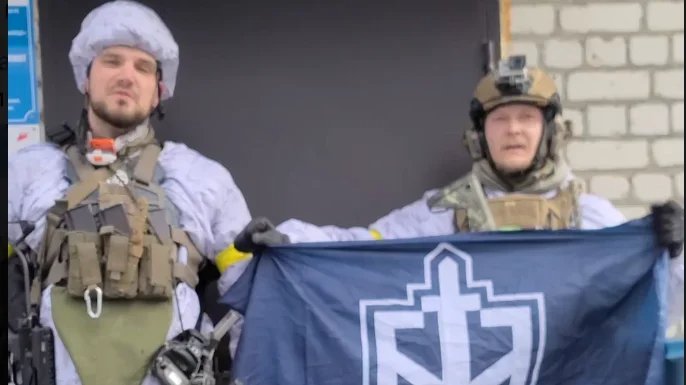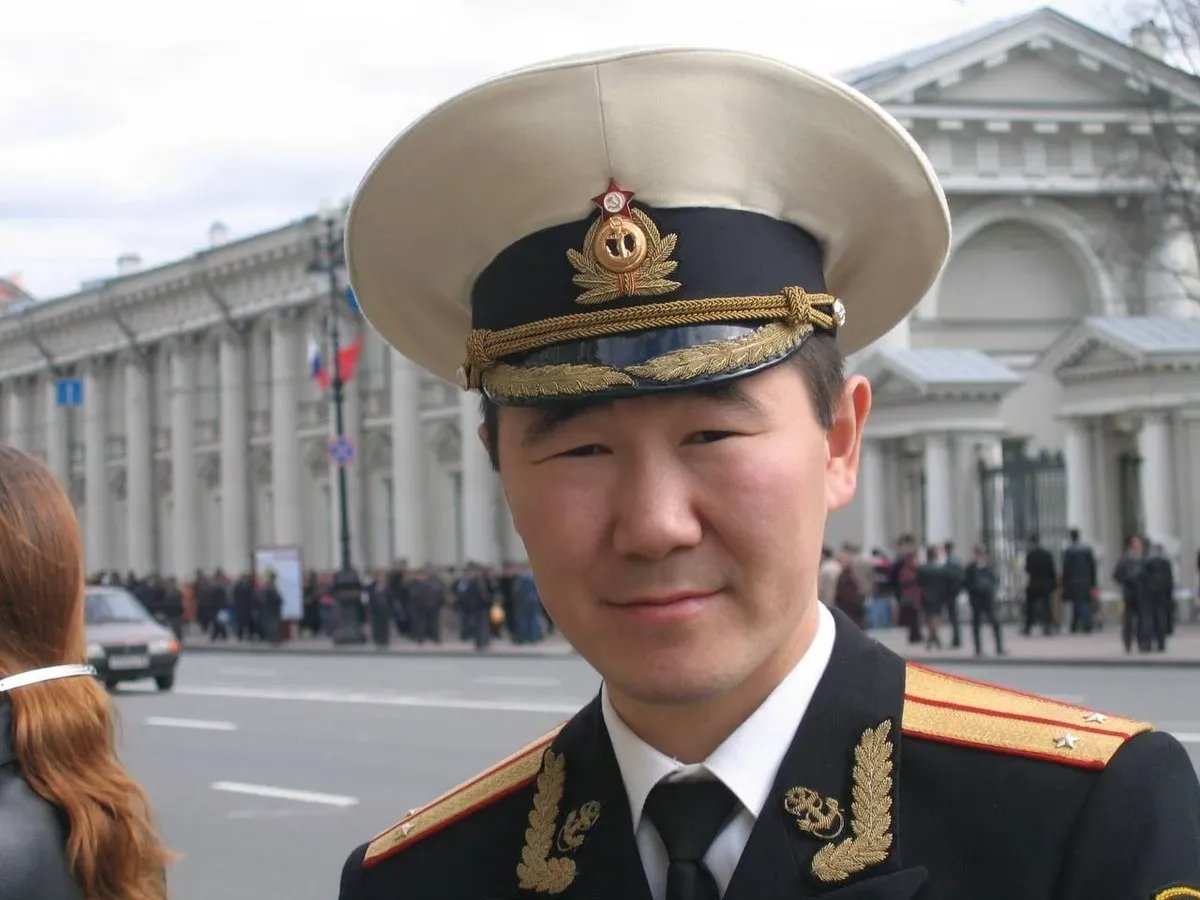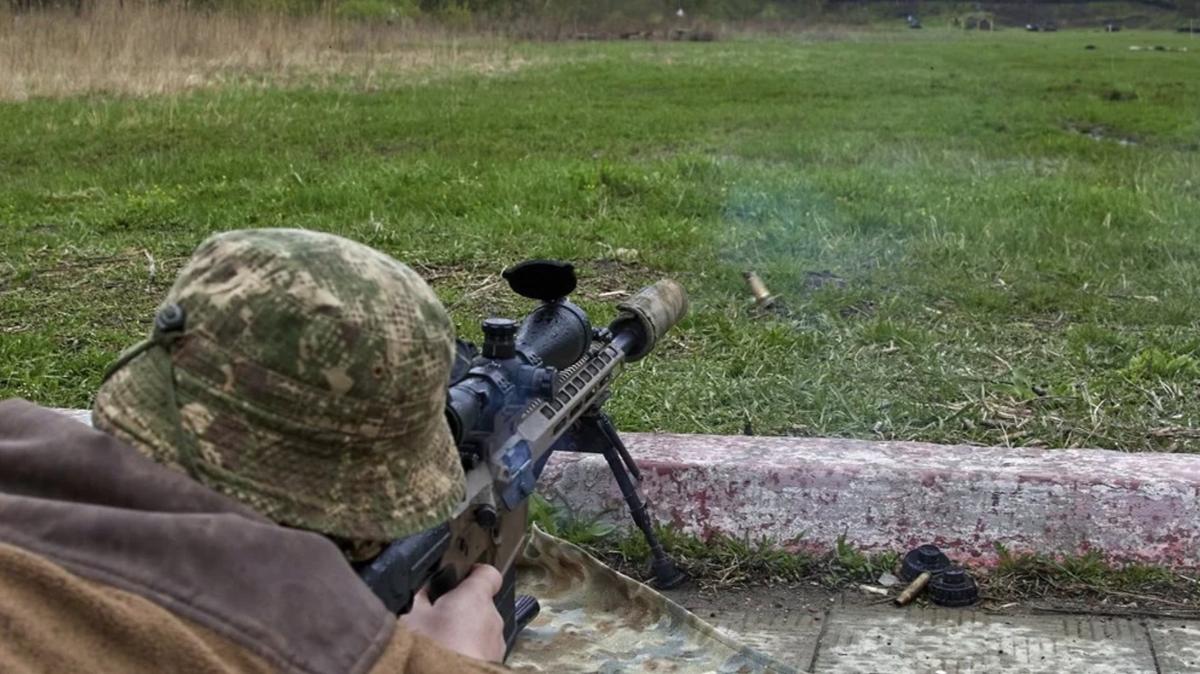Russian Volunteer Corps (RVC) members have already made two raids from Ukraine to the Bryansk region. On 2 March, they displayed their flag in the Russian border villages of Lubechane and Sushany. During the second operation in Sluchevsk and Zapesochye, a car with border guards who had arrived at the site exploded on a mine planted by RVC sappers. One of them was killed, and two were wounded.
Civil war
Novaya-Europe contacted the Civic Council, an organisation that has announced a recruitment campaign for the Russian Volunteer Corps and other formations that accept Russians wanting to fight against Russian troops. We also talked to Ildar Dadin, a well-known civil activist.
“Many are frightened by the very word ‘resistance,’” Anastasia Sergeeva, international secretary of the Civic Council, told Novaya-Europe. “The tools used by civil society since the 1990s have now wholly exhausted themselves. You can’t play chess if your opponent is going to box. Today you need to go and fight, making it clear for yourself which side of the conflict you’re on. There are no other options.”
“When the big war started, we had to do not what we wanted, but what was necessary,”
Denis Sokolov, the coordinator of the Civic Council’s Civic Resistance Centre, said. “It was simply impossible to evade this challenge. We decided that after 24 February, the only appropriate way to conduct political activity is armed resistance to Putin’s regime in all its forms — from personal involvement in clandestine movements to financial aid to combat units. This is the only way to stop the conflict and overthrow Putin’s regime. Activist Roman Udot put it best at the rally: ‘The best Russians now are those who wear the uniform of the AFU [Armed Forces of Ukraine].’ We declare openly to the world that violence is the only way to stop the common enemy. Moreover, given that citizens with Russian passports are fighting on both sides, this is a civil war.
According to Anastasia Sergeeva, since 24 February 2022, only those citizens of the Russian Federation who were already in Ukraine could fight with weapons on the side of Ukraine. It was almost impossible to enter Ukraine with a Russian passport. Some of them had been fighting in various units of the AFU since 2014. A group of Russian citizens, including those who had fought within the Azov battalion, created the RVC first as a territory defence unit, and then the RVC became part of the Foreign Legion. It was essential to the organisers to build an army based on an existing team instead of starting from scratch. And the idea was not to just create a small combat-ready unit. It was to create a liberation army, ready and able to fight Putinism, by starting small. Since November 2022, the Civic Council has become an organisation that recruits Russian citizens to fight Putinism both in Ukraine and in Russia.
The Civic Council comprises representatives from different communities: national, regional, and professional. This includes representatives of military units, now called the RVC. Currently, the organisation includes several Siberian regions, with representatives from Northwest Russia and the Far East in the process of joining. There are also many national entities: the Chechen Republic, Cherkessia, Tatarstan, Sakha, and Karelia.
“Like-minded people from different social strata constantly join us,” says Anastasia Sergeeva. “Their task is to fight the common enemy shoulder to shoulder. Our basic principles are the equality of all participants. Among us, everyone is equally important. The defining document is the European Convention on Human Rights. It is impossible today to speak to the world outside of its terms. To be heard, we must fully comply with these principles, combining them with the battle charter and, for example, with the tenets of Islam as the religion of some of our volunteers. We exclude entirely any kind of discrimination, both now and in the future when the question of restructuring relations between regions arises.
Also, our cornerstones are the right of a nation to self-determination and society to self-government. That is what we are fighting for. It is what people are willing to put their lives on the line for.”
This is how civil activist Ildar Dadin explained to Novaya-Europe his desire to fight against the Russian army on the side of Ukraine:
“Russia criminally, completely groundlessly and unjustly attacked Ukraine, committing grave crimes on a mass scale: murder, torture, rape, executions, terror against the defenders of Ukraine and its citizens, their families and relatives, and against innocent people, sparing neither women, nor children, nor the elderly. In my view, armed resistance is the only effective (in practical terms) remaining way for a decent person, particularly a Russian, to oppose Russian crimes.”
According to Ildar Dadin, the Civic Council was the only organisation willing to help him enlist in the AFU.
Word of mouth
According to representatives of the Civic Council, “word of mouth” rather than advertising and reposting on social networks is more critical today for recruiting new volunteers. A system where information is transmitted through trustworthy people is more reliable than recruiting from the street. After the mobilisation was announced, many men left Russia. Many of them joined the volunteers.
“We see this as true inner patriotism, caused by a desire to be on the side of the right cause,” explains Anastasia Sergeeva. “It’s important that these people are not cowards who fled the war, but honest citizens willing to risk their lives for their principles.”
Good Russians
Today, the Ukrainian military command promotes the work of the Civic Council and officially accepts Russian volunteers into the armed forces after a corresponding security check. But this was preceded by a long period of well-founded distrust.
“Our first attempt to join the AFU with weapons in hand in early March 2022 was rejected,” recalls Denis Sokolov.
“No one wanted to know if we were good Russians or not so good. Building trust and partnership took a lot of time and effort; the right to arms had to be earned.”
“It helped a lot that natives of the Russian North Caucasus had been fighting for Ukraine since 2014,” Denis continues. “These were Chechens, Ingush, and Dagestanis, who had formed Sheikh Mansur and Dzhokhar Dudaev battalions in 2014. Many Muslims of Russian origin ended up in the Crimea volunteer battalion. The commander of this battalion, Isa Akayev, made the first important step toward us. It helped that since I had been working as a field social anthropologist before the war, some Muslims from different Russian regions and the North Caucasus, including those already fighting for Ukraine, knew me and were willing to trust me. It was decided that we could recruit, train and send volunteers from Russia to the Foreign Legion.”
The Foreign Legion is built into the AFU system and is subordinate to the general military command. Foreign nationals, including fighters of the RVC, fight in this unit after being trained under contract. They receive all the necessary equipment and salaries.
“On 4 November 2022, we published the first announcement about recruiting volunteers,” says Denis Sokolov. “We took it upon ourselves to organise the process of recruiting, selecting, and vetting Russian citizens who wanted to join the Foreign Legion of the AFU. And in mid-January, the first group of our volunteers came to the RVC to continue their training. We work with people from inside Russia in compliance with security rules. We get a lot of applications from Russia. It’s about 50 to 70% of the total number of people who want to fight. We have a fairly secure registration system. You have to give minimal contact information there.”
Five thousand dollars each
With the help of the Civic Council, two groups of volunteers have already started training or been sent to the front, and three more are being prepared. Representatives of the organisation claim they receive dozens of applications daily. According to Denis Sokolov, they can assemble a 10-15 thousand-strong corps in a few months without organisational and financial constraints.
“People with different levels of training come to us. Some haven’t even served in the army and don’t know what discipline is and where the barrel of a machine gun is,” Denis Sokolov continues his story. “But even people who have served in hot spots have much to learn. After all, there has never been such a war with drones and other modern artillery guidance and reconnaissance systems as the one we have in Ukraine today. When recruits enter, they undergo security checks, as well as psychological and physical tests. This is followed by training. On average, the entire procedure takes from two weeks to two months. We are in need of professional military specialists, including officers and artillerymen.”
Before a fighter becomes a combatant in the AFU, he is provided with equipment by the Civic Council. One volunteer’s training, logistics, and equipment cost about five thousand dollars. The organisation’s helpers are people who cannot go to the front but are willing to help.
Many, for example, are willing to fund volunteer recruitment activities. As a rule, we are talking about entrepreneurs who have left Russia.
Some provide a whole group of recruits with everything they need, including training.
“We believe that this is how the future political class of the Russian regions and republics is formed — the people who fight for the liberation of Ukraine and then their homeland with weapons in their hands, and in other ways,” says Denis Sokolov.
Ultra-radicals at war
The Russian Volunteer Corps was created in July 2022. It mainly consisted of extreme right-wing nationalists. Some of them had been fighting since 2014 as part of the Azov battalion.

Russian Volunteer Corps. Screenshot
According to Denis Sokolov, the RVC has taken part in battles in many of the most difficult front areas. They do routine military work: there is a video of a sortie across the Dnipro River, carried out by the RVC and the Kalinouski Regiment (composed of Belarusian citizens fighting on the side of Ukraine). Sokolov also says that the fighters of the RVC are behind the attacks on Russian military bases, some of them with the help of HIMARS multiple rocket launchers.
“Some of the volunteers who join us are assigned to assault units. The fighters of the RVC have earned the trust of their Ukrainian brothers-in-arms and, thus, the right to fight with arms in their hands against the aggression of Russian citizens who have other beliefs. Now nationalists, liberals, and natives of national republics are fighting shoulder to shoulder at the front,” says Denis Sokolov. “Anyone on the front line will tell you that it’s better to fight back to back with a reliable comrade, even if he doesn’t share some of your political ideas, than with a coward who entirely agrees with you and runs from battle. We have already discussed the red lines essential to us as a Civic Council — the European Convention on Human Rights, justice, the right of peoples to self-determination, and the right of societies to self-government. Everyone has the right to their beliefs and to live in harmony with them in their homeland. That is what we are all fighting for. A democratic society under the rule of law is a process, not a static utopia; it is the daily defence of everyone’s rights and freedoms. If we fail to find ways to cooperate now, we cannot bring different people together in one free country. But first, we must stop Prigozhin and Kadyrov’s troops and prevent chaos and lawlessness.”
The RVC is a compact unit that tries to unite fighters of similar right-wing views. Therefore, while continuing to recruit for the RVC, the Civic Council has begun to form the Siberian Battalion. It will include residents of Siberia and the Far East. These will be representatives of various ethnic groups: Russians, Siberian Cossacks, Sakha, Buryats, Khakasses, Tuvinians, ethnic Ukrainians, and others. They will fight for the liberation of Ukraine, Siberia’s freedom, and their nations’ self-determination.
Novaya-Europe has talked to a Russian national who is likely to head the Siberian Battalion.

Vladislav Ammosov. Photo from personal archive
“I am a native of the Republic of Sakha Yakutia. Captain of the GRU [Russian military intelligence] in reserve,” says Vladislav Ammosov. “I took part in the Second Chechen War. I then served in the legendary military unit 54726. This is a closed institution that processes intelligence data. I left the reserve before 2014, when it finally became clear that this state and I have different paths. The seizure of Crimea and the aggression in Donbas looked like agony. It was already clear that the empire was disintegrating and would soon die. After all, Russia’s violation of international agreements meant that no one would comply with them when it concerned Russia. What is stopping my republic from holding a referendum and seceding from Russia? Yakutia will likely have to survive on its own in the future.”
Immediately after 24 February, Vladislav Ammosov decided that he must fight on the side of Ukraine. He had already left Russia with his family three years before that. After the war began, he repeatedly called the Ukrainian embassy. Having received no answer, he tried unsuccessfully to contact Ilya Ponomarev’s Freedom of Russia legion. He started his anti-war activities within Free Yakutia. He participated in the Forum of the Free Peoples of Russia. Through acquaintances, Vladislav got in touch with the Civic Council and began to participate in the creation of the Siberian Battalion.
“Now there are thousands of Russian guys who are ready to fight against the Russian Federation with weapons,” Ammosov says. “Several batches of volunteers have already come to Ukraine. I spent a month retraining. We passed inspections and signed contracts with the AFU. Now there is no place to sleep for everyone willing to join. The unit is already in the final stages of formation. There is a shortage of officers and qualified personnel. I hope my knowledge and experience will be of use during training and combat.”
Join us in rebuilding Novaya Gazeta Europe
The Russian government has banned independent media. We were forced to leave our country in order to keep doing our job, telling our readers about what is going on Russia, Ukraine and Europe.
We will continue fighting against warfare and dictatorship. We believe that freedom of speech is the most efficient antidote against tyranny. Support us financially to help us fight for peace and freedom.
By clicking the Support button, you agree to the processing of your personal data.
To cancel a regular donation, please write to [email protected]

